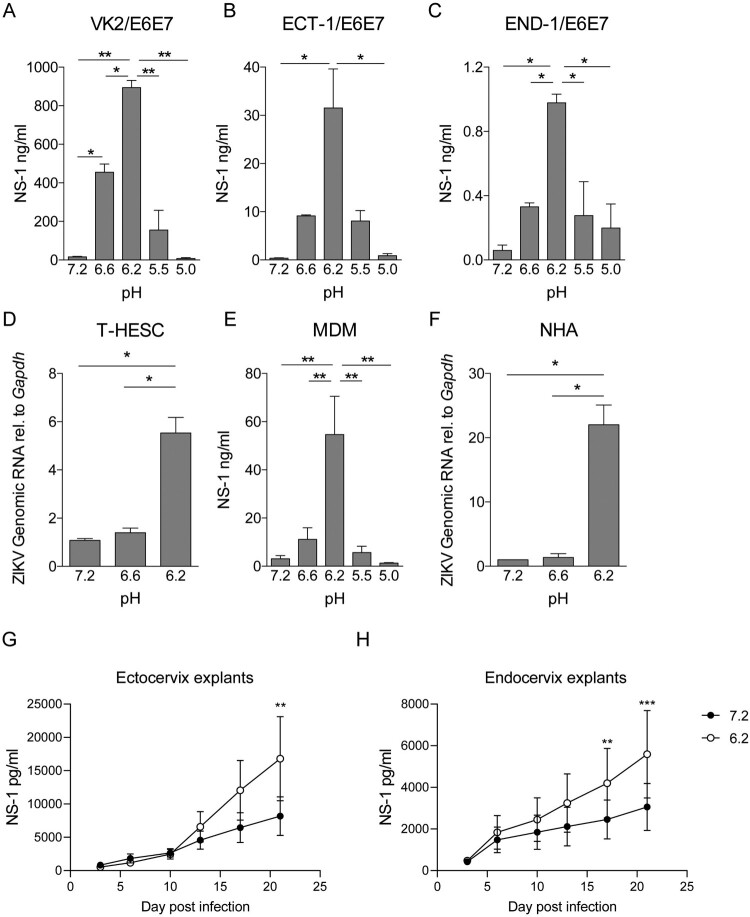Figure 2.
Acidosis enhances ZIKV infection in cells derived from the female reproductive tract and other target cells. Cells were incubated with ZIKV (A1C1-V2) at different pH values for 1 h at 37°C. Then, cells were washed and infection was assessed 72 h later. Infection of genital tract-derived cells VK2/E6E7 (A), Ect1/E6E7 (B), and End1/E6E7 (C) was quantified by measuring the extracellular concentration of NS-1 by Luminex. Infection of human endometrial fibroblasts (T-HESC) was quantified by qPCR (D). Infection of monocyte-derived macrophages (MDM) was quantified by measuring the extracellular concentration of NS-1 by Luminex (E). Primary culture-derived human astrocytes (NHA) infection was measured by qPCR (F). Human ectocervical (G) and endocervical (H) tissue cultures were dissected into 2 mm [3] pieces and infected with ZIKV (VR-1844 moi 0.1) either at pH 7.3 or 6.2 for 1 h at 37°C. The viral production was evaluated at days 3, 6, 10, 13, 17, and 21 by measuring ZIKV NS1 in the culture supernatant. Results in A, B, C, D, and F represent data of two independent experiments. Data in E comprises the results of four different donors. Panels H and G were constructed with data of three independent experiments per explant type, and data were analysed using paired two-way ANOVA. Results are presented as mean ± SEM.

